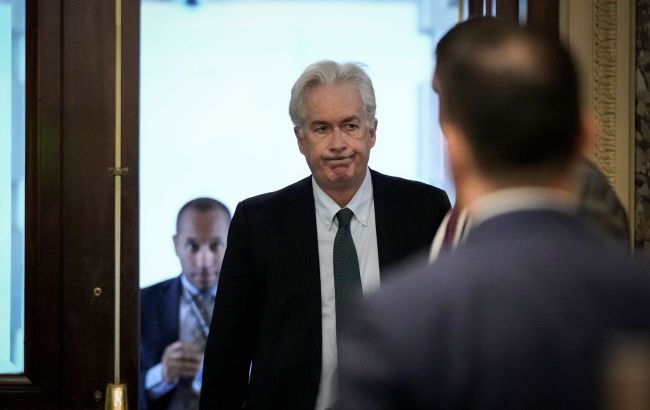Ukraine faces tough year in war with Russia, U.S. assistance vital - CIA chief
 Photo: CIA Director William Burns (Getty Images)
Photo: CIA Director William Burns (Getty Images)
Ukraine is facing a difficult year in the war with Russia. Termination of U.S. aid to Kyiv would be a mistake of "historic proportions," according to CIA Director William Burns.
"This year is likely to be a tough one on the battlefield in Ukraine, a test of staying power whose consequences will go well beyond the country’s heroic struggle to sustain its freedom and independence," he writes.
According to Burns, the post-Cold War era finally came to an end when Russia invaded Ukraine in February 2022.
"I have spent much of the past two decades trying to understand the combustible combination of grievance, ambition, and insecurity that Russian President Vladimir Putin embodies. One thing I have learned is that it is always a mistake to underestimate his fixation on controlling Ukraine and its choices. Without that control, he believes it is impossible for Russia to be a great power or for him to be a great Russian leader," the former U.S. ambassador to Moscow writes.
Putin's strategy failure
Burns notes that Putin's war has already become a failure for Russia on many levels. "His original goal of seizing Kyiv and subjugating Ukraine proved foolish and illusory. His military has suffered immense damage. At least 315,000 Russian soldiers have been killed or wounded, two-thirds of Russia’s prewar tank inventory has been destroyed, and Putin’s vaunted decades-long military modernization program has been hollowed out," he adds.
At the same time, Burns believes that Putin is rebuilding Russia's defense production - with the help of crucial components from China, as well as arms and ammunition from Iran and North Korea - and continues to bet that time is on his side, that he can crush Ukraine and exhaust its Western supporters.
"Ukraine’s challenge is to puncture Putin’s arrogance and demonstrate the high cost for Russia of continued conflict, not just by making progress on the frontlines but also by launching deeper strikes behind them and making steady gains in the Black Sea," Burns writes.
According to him, in this situation, Putin could start rattling his nuclear weapons again, "and it would be foolish to dismiss escalatory risks entirely. But it would be equally foolish to be unnecessarily intimidated by them."
Key to success
The head of the CIA believes that "Russia’s economy is suffering long-term setbacks, and the country is sealing its fate as China’s economic vassal." Putin's inflated ambitions have had unpleasant consequences in another sense: they have encouraged NATO to become bigger and stronger.
He says the key to success lies in maintaining Western aid to Ukraine. "At less than five percent of the U.S. defense budget, it is a relatively modest investment with significant geopolitical returns for the United States and notable returns for American industry," Burns notes.
"Keeping the arms flowing will put Ukraine in a stronger position if an opportunity for serious negotiations emerges. It offers a chance to ensure a long-term win for Ukraine and a strategic loss for Russia; Ukraine could safeguard its sovereignty and rebuild, while Russia would be left to deal with the enduring costs of Putin’s folly. For the United States to walk away from the conflict at this crucial moment and cut off support to Ukraine would be an own goal of historic proportions," Burns says.
China and Taiwan
Burns also says supporting Ukraine would disabuse China of the notion that the United States is "in terminal decline" and send "an important message of U.S. resolve that helps Taiwan."
"One of the surest ways to rekindle Chinese perceptions of American fecklessness and stoke Chinese aggressiveness would be to abandon support for Ukraine," he writes.

